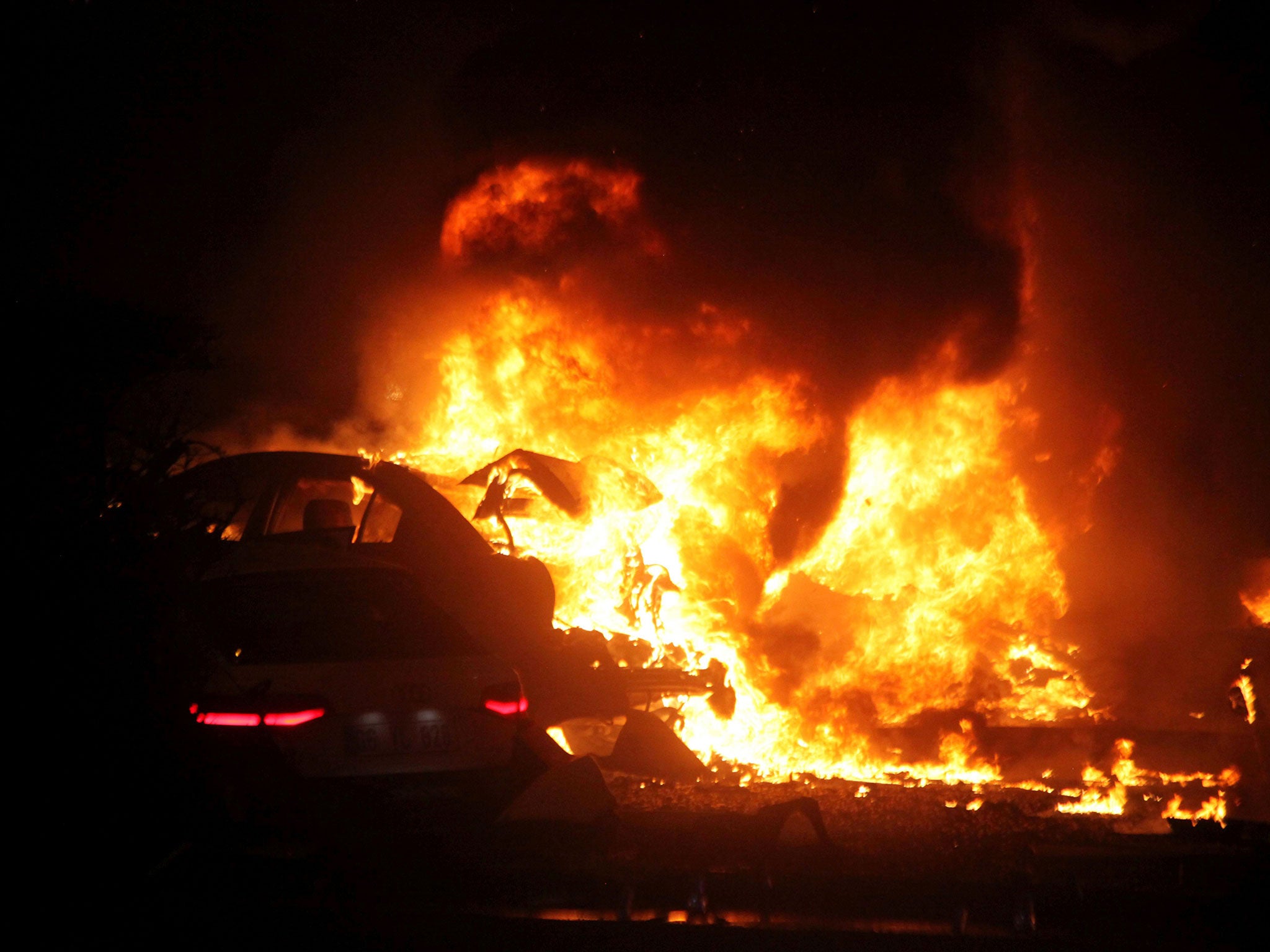Turkey explosion: Police say one of Ankara suicide bombers was a woman after attack kills at least 36 people
Huge car bomb is third blast to strike capital within six months and fuels fears of dangerous instability in Turkey

A huge car bomb has hit the Turkish capital, claiming the lives of at least 34 people and wounding dozens more.
The blast was the third to strike Ankara in less than six months. It will fuel fears that Turkey, which shares a border with Syria and is gripped by an internal conflict against Kurdish militias, is becoming dangerously unstable.
A car loaded with explosives detonated near a group of civilians at a bus stop in the central Kizilay district on Sunday shortly before 7pm local time in a suicide attack, the Turkish Interior Minister said. Police said one of the bombers was a woman.
The area is near a park, a metro station, a shopping centre and dozens of cafés. A courthouse and the justice and interior ministries are nearby. Footage from the aftermath of the blast showed mangled cars strewn across the busy main road and rescue workers running with stretchers. Turkey’s Health Minister said that 125 people were wounded, 19 of them seriously.
There were no immediate claims of responsibility, but Turkish officials told Reuters that initial findings suggested the attack had been carried out by the Kurdistan Workers Party (PKK) or an affiliated group. In what has become a familiar pattern in Turkey, authorities imposed a nationwide ban on reporting details of the incident. Social media users also reported being unable to access Twitter and Facebook.
In pictures: Ankara bombing
Show all 30Turkey’s Prime Minister, Ahmet Davutoglu, held an emergency cabinet meeting after the bombing with the Interior Minister, the head of the intelligence agency and police and security chiefs. President Recep Tayyip Erdogan vowed that his country’s fight against terrorism would be successful, adding: “Terror will be brought to its knees.”
Turkey has been on high alert after a series of recent attacks by an array of groups in Istanbul, Ankara and in the south-east, where a 30-year conflict between the state and Kurdish militias was reignited last summer.
On Friday, the United States embassy warned citizens that there was a potential plot to attack government buildings in the Bahcelievler area of the city, about two miles from the blast.
The attack on the capital came less than a month after a car bombing on a military convoy killed 30 people just a few minutes’ walk from the bombing. That attack was claimed by the Kurdistan Freedom Hawks (TAK), which described it as a “suicide revenge mission” for military operations in the town of Cizre. The town is one of several in Turkey’s south-eastern region to have witnessed heavy clashes between Turkish security forces and the PKK, which says it is fighting for greater autonomy for the Kurdish minority.
The latest flare-up in the conflict began last summer and has been focused on urban centres, forcing tens of thousands from their homes and trapping civilians in the middle. Turkish authorities announced that the towns of Yuksekova and Nusaybin would go into an indefinite 24-hour lockdown as security forces prepared to launch operations.
In January, 13 tourists were killed in a suicide bombing near Istanbul’s famous Blue Mosque in an attack blamed on a Syrian member of Isis.
In October, 103 people were killed when two suicide bombers detonated their vests in the middle of a peace rally in Ankara in another Isis attack. It was preceded by two other attacks blamed on the group in the south-eastern towns of Diyarbakir and Suruc, which killed a total of 37 people.
The latest bombing will cause deep alarm in Western capitals where Turkey, a Nato member, has long been seen as an important buffer zone between Europe and the turmoil in Syria, Iraq and beyond.
The European Union sees Turkey as a key partner in its plan to stem the flow of refugees and migrants.
Turkey is also facing a time of increased political tensions. President Erdogan has presided over a crackdown on media, civil society and the judiciary, prompting critics to warn that he is taking an increasingly authoritarian turn.
Subscribe to Independent Premium to bookmark this article
Want to bookmark your favourite articles and stories to read or reference later? Start your Independent Premium subscription today.

Join our commenting forum
Join thought-provoking conversations, follow other Independent readers and see their replies